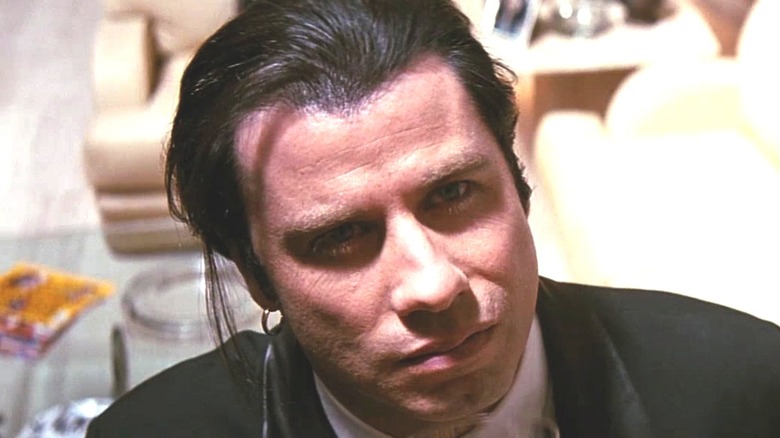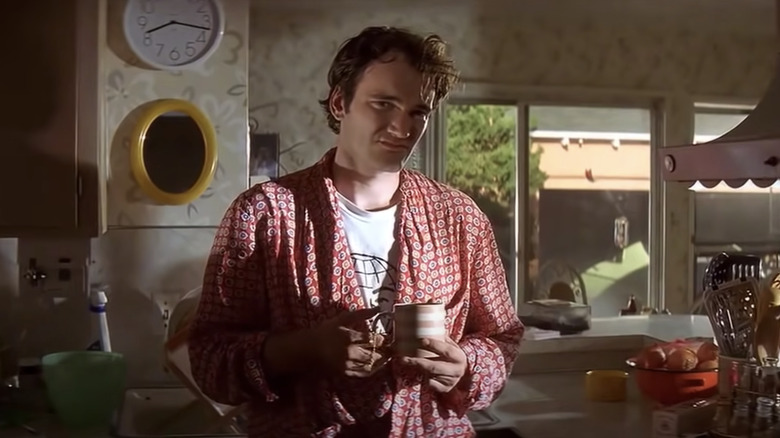The Pulp Fiction Scene That Aged Poorly
It is hard to believe that it has been almost thirty years since Quentin Tarantino's crime classic "Pulp Fiction" was released. Tarantino's follow-up to "Reservoir Dogs" was highly anticipated, but the director did not have the same influence that he does today. At the time, there were some reservations about the film. Entertainment Weekly reported that almost every major studio had passed on the project, and they only received the green light once Butch Coolidge (Bruce Willis) was cast. "Once I got Bruce Willis... we were all good," Tarantino said. "Bruce Willis made us legit."
Today, Bruce Willis is not necessarily what fans think of when they remember "Pulp Fiction." Instead, they may think of scenes like Jules Winnfield's speech about the righteous man, which is one of Samuel L. Jackson's most paused movie moments. Since "Pulp Fiction" is often ranked as Tarantino's best film, it will always be cinematically significant with the director's non-linear storytelling and vibrant characters. But there is a scene that makes the film memorable for an entirely different reason.
It wasn't just about Jimmie's love of coffee
After a hit has gone wrong, assassins Jules Winnfield (Samuel L. Jackson) and Vincent Vega (John Travolta) must hide a dead body. They end up at Jules' friend Jimmie's house, and he is played by Tarantino himself. While Jules and Vincent are in Jimmie's kitchen, complimenting the coffee he made for them, the character in question uses a slew of racial slurs. The casual use of this language by the director of the film makes the scene especially uncomfortable to watch in the present.
Tarantino films have long been known for their heightened reality as well as their violence, which includes the aggressive dialogue his characters use. Notably, Samuel L. Jackson has defended Tarantino's use of racial slurs — in an article for IndieWire, Jackson noted: "There's no dishonesty in anything that [Quentin] writes or how people talk, feel, or speak [in his movies]." However, this rings a little different in the modern era. Tarantino is a genre to himself, and despite his intentions, these kinds of scenes are especially controversial today.

